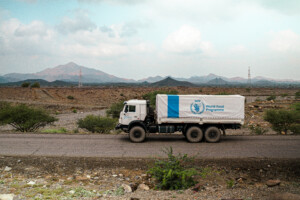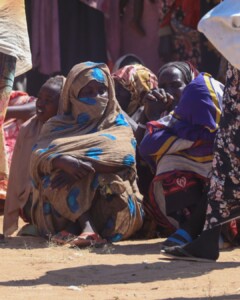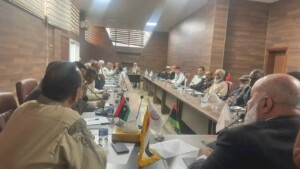‘Every household a latrine’: North Darfur, aid groups agree on water plans
The government of North Darfur has agreed to plans worth $22.3 million to improve the water supply, sanitation and hygiene in the state capital together with United Nations aid organisations and the United Kingdom (UKaid).
The government of North Darfur has agreed to plans worth $22.3 million to improve the water supply, sanitation and hygiene in the state capital together with United Nations aid organisations and the United Kingdom (UKaid).
The government's signing of the plans on Tuesday signals the start of the implementation with Unicef, the United Kingdom Department for International Development (UKaid), and the UN Office for Project Services (UNOPS).
North Darfur state governor Abdelwahid Yousif said after the signing in Khartoum: “The vision for El Fasher is that every household has access to a reliable supply of clean water, every household has a latrine, all citizens practice better hygiene, and all citizens live in a cleaner environment .”
Over the next two years, over SDG150 million ($22.3 million) of investments in infrastructure and capacity will be made, UNOPs wrote in a press statement extended to Radio Dabanga.
The plans have been developed by the North Darfur state government, specifically the State Ministry of Health, State Ministry of Physical Planning and Public Utilities, and the El Fasher Locality, supported by Unicef and UNOPs.
New tariffs
'Ensuring equity throughout the town is a priority,' writes UNOPs. 'Currently the poorest people pay the most for water because they do not have access to the urban water supply system. The poorest people also have the worse sanitation facilities, some do not have a latrine and defecate outside.'
With these plans an estimated 230,000 people is expected to gain access to water from the government-managed urban water supply network, for the first time.
Appropriate tariffs for the maintenance of the services will be introduced, raising from the current household tariff of 4 pounds ($0.60) per cubic metre to a maximum 10 pounds ($1.50) per cubic metre. The monthly amount spent on water for all households will reduce because people will buy less water from the more expensive water vendors.
In July this year, the North Darfur Legislative Council instructed the formation of a committee that would follow-up on water and electricity problems. Work on a water project that had stopped because of a lack of funding, would then be continued.
Transparency
Speaking in Khartoum at the press briefing, Head of UKaid Dr Christopher Pycroft said: “Service delivery requires mutual accountability and transparency. It requires the state government to provide reliable services at an affordable price and it requires consumers to pay for those services, and to use them responsibly.”
As for Unicef representative Abdallah Fadil, he urged the people in El Fasher to accelerate efforts in the implementation of these improvements. “Make a difference for the next generation.”











 and then
and then